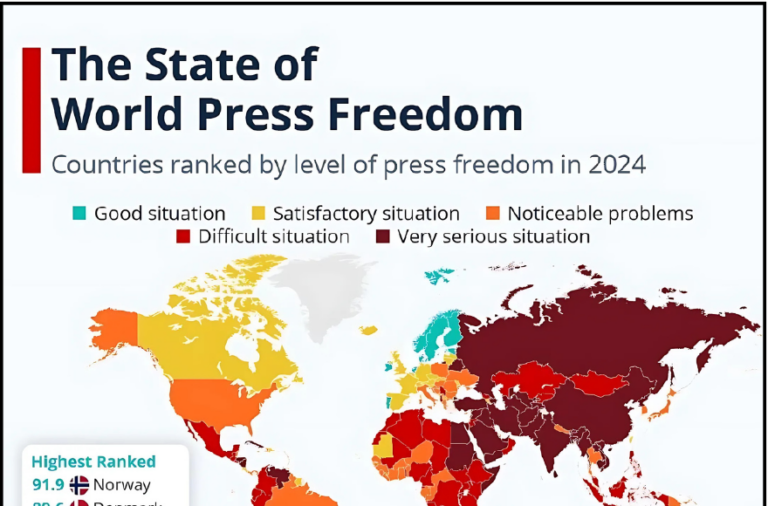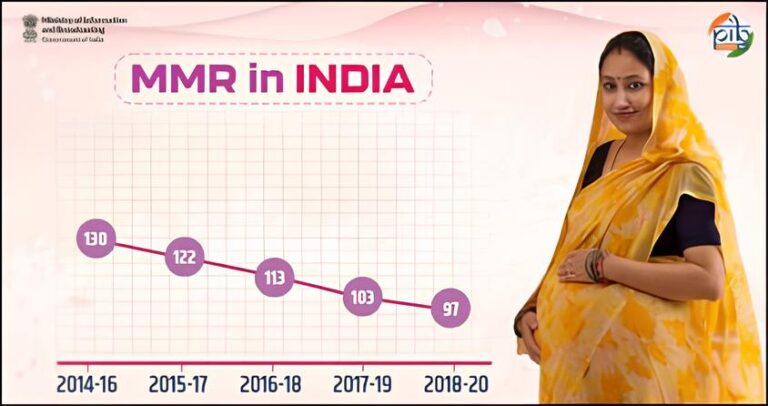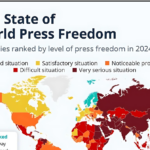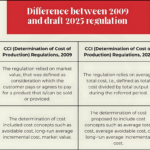CCI Issues ‘Cost of Production’ Regulations to Tackle Unfair Pricing in E-Commerce
The Competition Commission of India recently notified the Competition Commission of India (Determination of Cost of Production) Regulations, 2025, aimed at effectively assessing alleged predatory pricing and deep discounting practices in the quick commerce and e-commerce sectors.
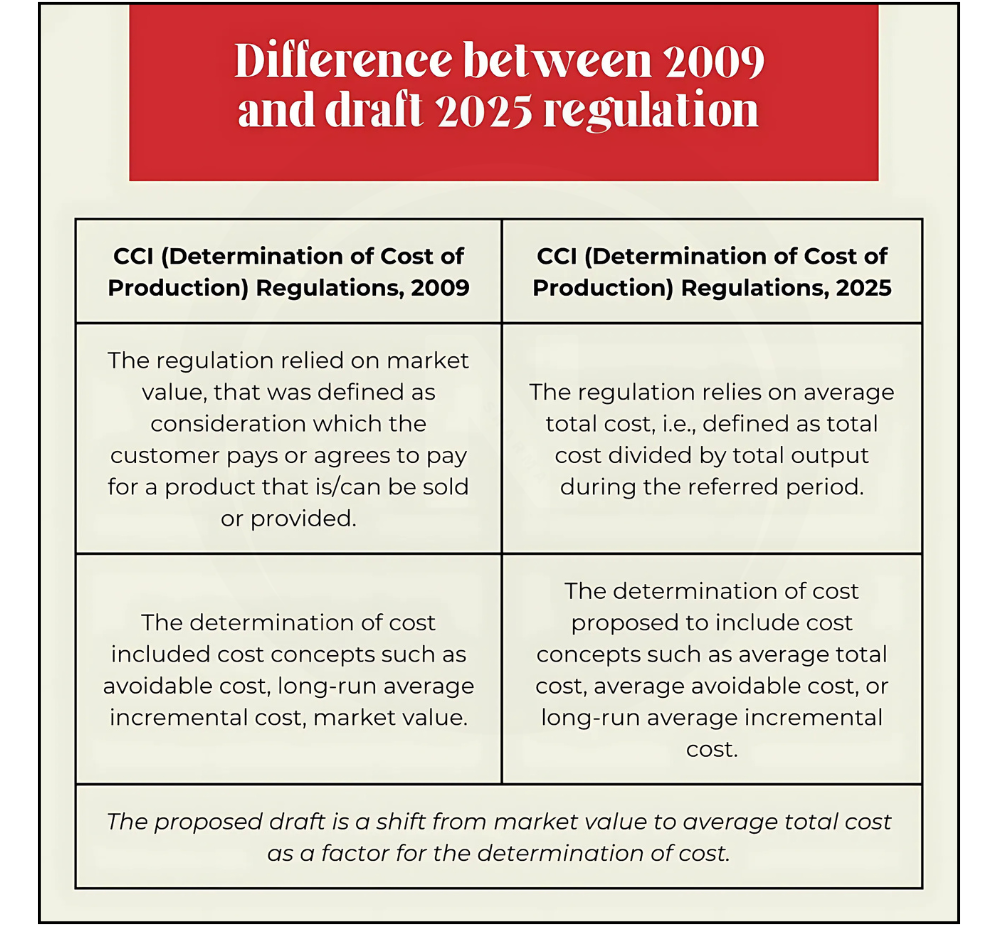
About Competition Commission of India (Determination of Cost of Production) Regulations, 2025:
- It was notified by the Competition Commission of India (CCI).
- It is aimed at effectively assessing alleged predatory pricing and deep discounting practices in the quick commerce and e-commerce sectors.
- Predatory pricing refers to a strategy where a dominant company deliberately lowers its prices below the cost of production to drive competitors out of the market.
- Once rival firms are weakened or eliminated, the company typically raises prices to recoup its losses and consolidate market control.
- This practice is specifically prohibited under Section 4(2)(a)(ii) of the Competition Act, 2002, when used to unfairly gain or maintain dominance.
- To strengthen oversight of such behaviour, the CCI (Determination of Cost of Production) Regulations, 2025, implement updated cost assessment standards.
- These revised benchmarks are designed to reflect modern economic thinking, judicial rulings, and international best practices in competition law.
- According to the latest regulations, the “cost of a good or service would be assumed to be its average variable cost”, which is the total variable cost divided by total output during a particular period.
- Here, the total variable cost refers to the total cost (including everything that goes into the production of that good or service) minus the fixed cost and fixed overheads attributable to the product.
- One of the key changes in the new regulations is the shift from sector-specific benchmarks to a case-by-case assessment model that is flexible and adaptable to various industries, including the digital economy.
About the Competition Commission of India (CCI)
- The Competition Commission of India (CCI) is a statutory and quasi-judicial body operating under the Ministry of Corporate Affairs.
- Established in March 2009 under the Competition Act, 2002, the CCI aims to prevent anti-competitive practices, promote and sustain market competition, protect consumer interests, and ensure the freedom of trade in India’s markets.
Objectives of the Competition Commission of India (CCI)
- Eliminating Anti-Competitive Practices: To eradicate monopolistic practices and cartels that adversely affect market competition.
- Promoting Competition: To foster fair and healthy competition to ensure efficient market functioning.
- Consumer Protection: To safeguard consumers’ rights by enabling access to a variety of goods and services at competitive prices.
- Freedom of Trade: To create a level playing field to ensure free trade across Indian markets.
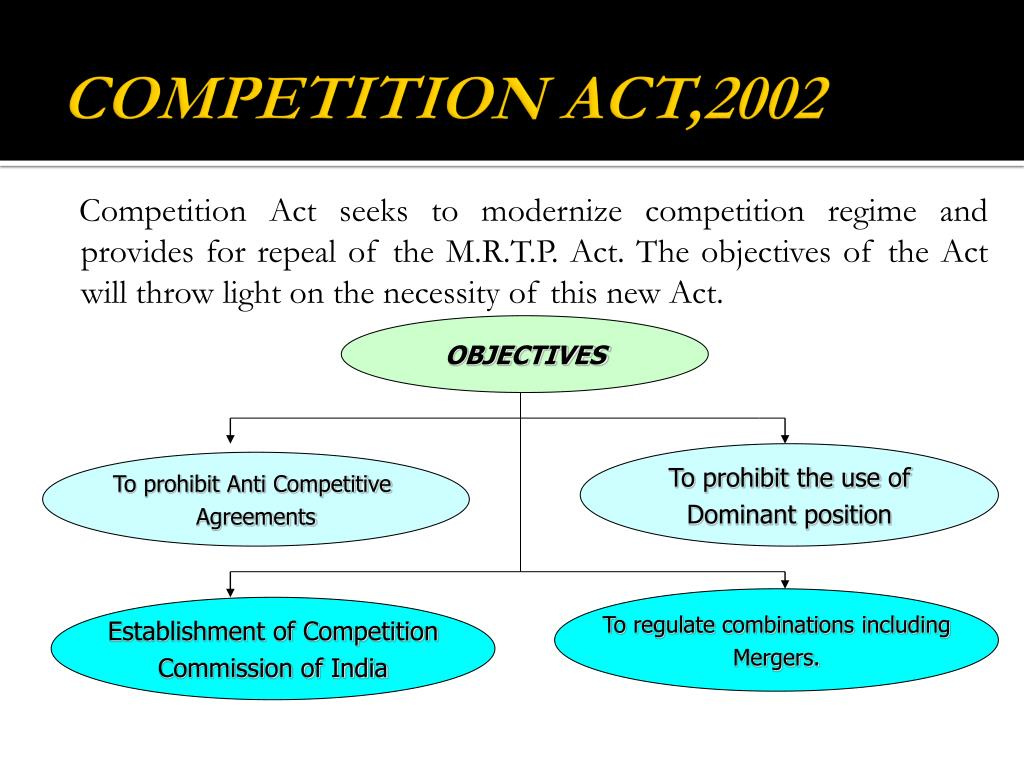
- Establishing a Competitive Environment: To achieve this, by:
- Actively engaging with consumers, industries, governments, and international counterparts. Building a knowledge-driven organisation with high professional competence.Enforcing the Competition Act with transparency and diligence.
Functions of the Competition Commission of India (CCI)
- To fulfil its mandate, the CCI performs the following functions:
- Market Regulation for Consumer Welfare: Ensure that markets operate for the benefit and welfare of consumers by preventing monopolistic or restrictive trade practices.
- Encouraging Economic Growth: Promote fair competition in economic activities to foster inclusive and faster economic development.
- Implementation of Competition Policies: Work towards the efficient utilisation of resources by curbing anti-competitive practices.
- Interaction with Sectoral Regulators: Collaborate with sectoral regulatory authorities to align regulatory laws with competition law for cohesive market governance.
- Awareness Generation: Conduct programs and campaigns to educate stakeholders, including consumers and businesses, to cultivate a culture of competition in India’s economy.
Conclusion
- The Competition Commission of India plays a pivotal role in creating a competitive, fair, and consumer-friendly market ecosystem in India
PRELIMS PRACTICE QUESTION
Question: Regarding the Competition Commission of India (Determination of Cost of Production) Regulations, 2025, consider the following statements:
- The regulations mandate the use of total cost (fixed + variable) as the primary basis for determining predatory pricing.
- These regulations have transitioned from a rigid sector-specific benchmark model to a flexible case-by-case evaluation system.
- Under the regulations, “average variable cost” is calculated by dividing total cost by the total output over a given period.
- The new cost assessment standards are influenced by global competition norms, evolving judicial interpretations, and contemporary economic frameworks.
Which of the statements given above is/are correct?
A. 1 and 3 only
B. 2 and 4 only
C. 1, 3, and 4 only
D. 2, 3, and 4 only
Correct Answer: (B) 2 and 4 only
Explanation:
- Statement 1 is incorrect: The regulations emphasise average variable cost (not total cost) as the primary metric for identifying predatory pricing.
- Statement 2 is correct: The shift from sector-specific benchmarks to a case-by-case model is a key change.
- Statement 3 is incorrect: Average variable cost is calculated as total variable cost divided by total output, not total cost.
- Statement 4 is correct: The new benchmarks align with international best practices, court rulings, and modern economic principles.

